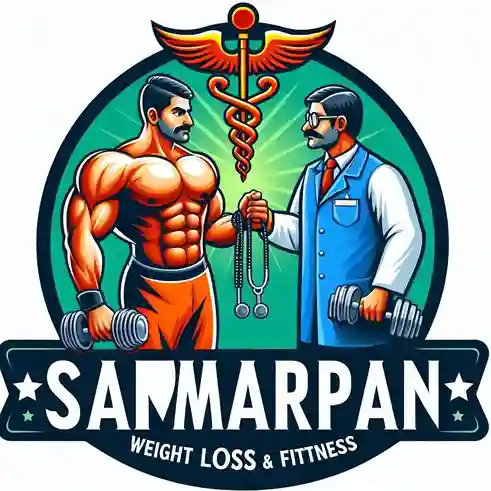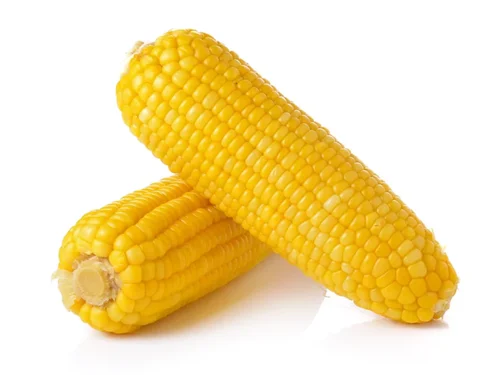Is Corn Good For Fat Loss?
Is Corn Good For Fat Loss?
Around the world, corn is one of the most widely consumed grains. It is frequently consumed in a variety of ways, such as boiling kernels, popcorn, or delectable soups and salads. However, does corn play a part in your efforts to lose weight? Does eating corn help you lose weight?
Yes, but only if you eat with awareness. To find out why corn can help you lose weight and how to incorporate it into your diet, let us read the specifics.
Corn: Is It a Grain or a Vegetable?
It is common for people to question whether maize is a vegetable or a grain. The method of harvesting determines the response. Sweet corn, when collected when still young, is regarded as a starchy vegetable.
However, when maize is dried and matured, it turns into a grain and is frequently categorized as a whole grain when consumed raw. In any case, maize is a versatile and healthful complement to any meal plan because it is packed with nutrients.
Corn’s Nutritious Value
Since corn is mostly made up of carbs, the body may naturally use it as a source of energy. The following nutrients are found in one cup (150 grams) of boiling sweet corn:
- Approximately 125 kcal
- About 27g of carbohydrates
- 5g of protein
- Fiber: about 3.3g
- About 1.5g of fat
- Minerals and Vitamins: High in B vitamins (particularly B1, B5, and B9), potassium, magnesium, and vitamin C.
Starches, which make up the majority of corn’s carbs, give you long-lasting energy. However, it is crucial to remember that eating too much maize can also cause blood sugar levels to rise, particularly in people who have diabetes or insulin resistance. Because of this, while using corn as part of a weight loss regimen, portion management is crucial.
Due to its natural gluten-free status, corn offers a flexible and safe substitute for those with celiac disease or gluten intolerance.
It is important to note that when we discuss how nutrient-dense corn is, we are referring to whole, fresh corn, not processed corn products.
During processing, processed maize—such as corn syrup, corn chips, and corn oils—often loses a significant amount of its fiber and minerals. These goods are a poor choice for weight loss because they are usually packed with additional sugar, salt, and harmful fats. Processed maize products can cause weight gain and other health problems rather than aid in weight loss.
Therefore, if you want to reap the nutritious benefits of whole corn without the drawbacks, you must stick to it in its natural form.
The Top 7 Nutritional Advantages of Corn
When eaten in moderation, corn can help people lose weight. Here are some reasons why the answer to the question “Is corn good for weight loss?” is unquestionably yes.
- Corn has Fiber for Fullness
Because it encourages fullness and maintains a healthy digestive system, fiber is an essential component for weight loss. Both soluble and insoluble fiber can be found in corn. While insoluble fiber gives stool more volume and helps avoid constipation, soluble fiber lowers cholesterol and helps regulate blood sugar levels. Longer feelings of fullness decrease snacking, which contributes to a calorie deficit.
- There is less fat in corn.
Because maize is naturally low in fat, it is a fantastic food to eat if you are watching your calorie consumption. It is a great substitute for calorie-dense snacks like fried foods or chips.
- Corn Offers Durable Power
Corn’s slow-digesting carbohydrates deliver energy gradually as opposed to quickly. It is therefore the perfect food to keep you moving throughout the day, which is particularly helpful if working out is a component of your weight-loss strategy.
- Corn Has a Lot of Antioxidants
Plant substances found in corn, such as lutein and zeaxanthin, are antioxidants that improve eye health and lower inflammation. Since persistent inflammation can impede weight loss, these substances may indirectly aid in fat loss.
- Resistant Starch Found in Corn
Certain maize varieties, particularly those that are less processed, include resistant starch, a kind of carbohydrate that functions similarly to fiber. Resistant starch enhances digestion, increases feelings of fullness, and feeds beneficial gut flora.
- Corn Encourages Nutrient Balance
A healthy weight loss journey is supported by the presence of vital vitamins such as potassium, magnesium, and B vitamins, all of which are abundant in corn. Maintaining a balanced diet is crucial for long-term fat loss, and these nutrients help with that.
By increasing metabolism, B vitamins help your body burn calories for energy more effectively. While potassium aids in maintaining fluid balance and preventing bloating, magnesium promotes muscle repair and lessens weariness, particularly after exercise.
Corn is a great addition to your weight loss plan because of these nutrients, which work together to promote general fitness.
- Corn Promotes Blood Sugar Consistency
The glycemic index (GI), which gauges how rapidly a food alters your blood sugar levels, is a crucial consideration while attempting to reduce weight. Because they release sugar more gradually, foods with a lower GI help you feel fuller longer and prevent energy dips. This makes them generally better for weight loss.
The good news is that corn is a fantastic dietary choice for weight loss because of its moderate glycemic index. Accordingly, corn helps keep blood sugar levels stable, avoiding sharp rises and falls that frequently result in cravings and overindulgence. As a result, following your weight loss plan gets simpler.
Five Known Health Advantages of Corn
In addition to aiding in weight loss, corn has the following many health advantages:
- Corn Benefits Eye Health
Zeaxanthin and lutein, two antioxidants that support healthy vision and lower the risk of age-related macular degeneration, are abundant in corn. - Corn Aids in Digestion
Corn’s high fiber content helps with digestion, avoiding constipation, and maintaining gut health. Because gut health affects metabolism and nutrient absorption, it is essential for successful weight loss. - Diverticular Disease May Be Prevented by Corn
Diverticular disease, a condition that affects the colon and can cause bloating, discomfort, and inflammation, was found to be considerably less likely to develop in those who ingested larger quantities of fiber, notably from maize.
According to the study, people who consume 30 g of fiber daily have a 41% lower risk of diverticular illness than people who consume less fiber.
Due to its high dietary fiber content, corn can be a great way to maintain a healthy digestive tract and help you reach your daily fiber objectives.
- Corn Helps Maintain Healthy Skin
Essential vitamins like C and E, which are found in corn, are important for maintaining healthy skin. Collagen, a vital protein that maintains the skin tight and young, is produced more readily when vitamin C is present.
These vitamins also have strong antioxidant properties that save the skin from damage caused by free radicals and lessen the appearance of aging. In addition to reducing redness and soothing irritated skin, corn’s antioxidants support a more balanced and healthy skin tone.
- Corn Strengthens the Immunity
Vitamin C and B vitamins, which are essential for maintaining a robust immune system, are found in corn. Vitamin C promotes the healing process and helps shield your body from illnesses. Additionally, B vitamins—such as B1, B5, and B9—support general health by assisting your body in converting food into energy.
A strong immune system is essential for weight loss because it keeps you energized, helps you recover from workouts, and keeps you healthy all along the way.
Is It Possible to Gain Weight from Corn?
We have spoken about how maize can help people lose weight up to this point, but like anything else, it has drawbacks if consumed in excess.
Yes, if corn is taken in excess or processed forms, it can lead to weight gain. Products made from maize, such as buttered popcorn, chips, and sugary corn syrups, are not the best choices for weight loss because they are low in nutrients and heavy in calories. Your attempts to control your weight may be quickly derailed by the unhealthy fats, added sugars, and salt that these meals frequently include.
Furthermore, eating a lot of maize without controlling portion sizes can result in weight gain due to its high starch content. Even healthful foods, like maize, can lead to excess calorie consumption and possible weight gain if consumed in excess.
Dietitians advise those trying to lose weight to limit their intake of corn to whole or minimally processed varieties, such as boiled or grilled corn. Approximately ½ to 1 cup of boiling corn per day is the standard serving size for weight loss. This amount gives you enough nutrients and fiber to satisfy your hunger without going overboard with calories.
How to Eat Corn to Lose Weight
- One of the easiest and healthiest types of corn to consume is roasted. To avoid consuming too many calories, avoid adding butter or oil to the roasted corn. To improve the flavor, you can garnish with salt and a squeeze of lemon.
- For weight loss, boiling corn is a great, healthful snack. Top with ginger and salt, then savor the deliciousness.
- For a delicious and weight-loss-friendly dinner, stir-fry maize, capsicum, spring onions, and other vegetables together.
- Before dining, have a clear sweet corn soup to help you avoid eating too much. You will feel satisfied for a very long time. To increase the soup’s nutritional worth, add a variety of vegetables, including beans, broccoli, carrots, and your choice of protein. Butter and cornstarch are high in carbs, therefore do not use them.
- Make salads, low-calorie fritters, and chaats with sweet corn. It can also be substituted for foods that contain too much sugar.
- The nutrients in baby corn are abundant. It is also better for losing weight because it has fewer starch and fat. A spicy baby corn salad or a baked crispy baby corn snack goes nicely with your weight loss meal, which makes the process of losing weight easier.
- Popcorn is a tasty, low-calorie, and healthful snack. However, when cooking it, try to use as little oil as possible, if any.
- Eating corn upma for breakfast is very nourishing and helps you lose weight. In addition, it can be eaten as a tiffin snack, evening snack, or light meal.
How Can I Include Corn in My Diet to Lose Weight?
After learning the answer to the question, “Is corn good for weight loss? A few simple and healthful methods to include maize in your diet are as follows:
- Roasted or boiled corn on the cob
- Add maize kernels to vegetable soups and salads.
- Select popcorn that is air-popped and free of butter or extra oil.
- As an accompaniment to grilled veggies, corn
- Stir-fried foods with corn
- Blend in some corn.
- Tacos or vegetarian burgers made with corn
- quinoa and corn salad
- Bean wraps with corn
Who Is Not Allowed to Eat Corn?
Despite corn’s general health benefits, some persons may need to limit or stay away from it:
- Corn’s moderate glycemic index may cause blood sugar levels to increase in diabetics.
- Corn allergies are uncommon, though.
- Because corn contains carbohydrates, it may not be suitable for people following rigorous low-carb or ketogenic diets.
- People with Irritable Bowel Syndrome (IBS) since some IBS sufferers may experience stomach pain due to corn’s high fiber content.
- Although corn is gluten-free, processed corn products may contain gluten or be cross-contaminated, which can be problematic for those with celiac disease.
Concluding remarks
Does corn help people lose weight? Yes, as long as it is consumed in its entirety and moderation. Corn, which is rich in fiber, antioxidants, and vital nutrients, will help you achieve your weight loss objectives and improve your general health. But portion management and balance are crucial. To benefit from whole corn, choose it over processed types and include it in a calorie-conscious, healthful diet.
FAQs
Is corn ok for weight loss?
As long as you limit your daily intake to no more than one medium-sized ear or one cup of kernels, you can still enjoy corn while losing weight. The fact that corn is high in fiber and low in calories is only one of its many wonderful qualities that may help with weight loss.
Is corn better than rice for diet?
Except for tryptophane, corn is higher in dietary fiber, lipids, and protein. Overall, corn has more vitamins than rice since it contains vitamins A, C, and K, and it is four times richer in vitamin B2.
Can I eat corn every day?
It is Good to Eat Corn Every Day. It is rich in essential nutrients like as vitamin A, vitamin C, and dietary fiber. Corn’s insoluble fiber can promote regular bowel motions and help with digestion. Antioxidants like lutein and zeaxanthin, which are also found in corn, may help shield the eyes from age-related conditions.
Can we eat corn at night?
Some people discover that eating corn right before bed can interfere with their attempts to lose weight, create indigestion, or impair their sleep. This discovery might be because maize has more insoluble fiber and more starch and carbs than other vegetables, but the impact will probably vary from person to person.
Is there any benefit to eating corn?
Additionally, corn has a lot of vitamin C, an antioxidant that helps shield your cells from harm and prevents conditions like cancer and heart disease. Corn contains lower levels of minerals such as potassium and vitamins B, E, and K.
References:
- Kaushik, D. S. (2024, November 20). Is Corn Good For Weight Loss? – Aura the Diet Clinic. Aura the Diet Clinic. https://www.aurathedietclinic.com/is-corn-good-for-weight-loss/t. Saurabh Kaushik, 25/12/2024, https://www.aurathedietclinic.com/is-corn-good-for-weight-loss/
- Shenai, A. (2023, November 30). Is Corn Good For Weight Loss? Find Out – HealthifyMe Blog. Healthifyme. https://www.healthifyme.com/blog/corn-for-weight-loss/



